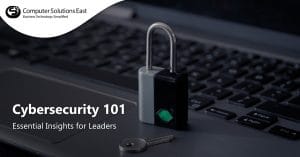Insights and Best Practices from Cyber Security Service Providers That You Should Know
The current state of cyber security attacks is characterized by a continuously evolving landscape of sophisticated threats. Cyber attackers employ various tactics, such as social engineering, ransomware, phishing, and zero-day exploits, to exploit system vulnerabilities and gain unauthorized access to sensitive data. These attacks often target businesses, government organizations, and individuals alike. The consequences of successful cyber attacks can be severe, including financial losses, reputational damage, and potential legal repercussions.

To prevent cyber security attacks, cyber security service providers play a crucial role in implementing a range of proactive measures. Firstly, they employ advanced threat intelligence and monitoring systems to detect and mitigate potential threats. They constantly analyze global cyber threat landscapes and stay updated on emerging attack vectors to strengthen their defense mechanisms. By leveraging threat intelligence, cyber security managed service providers can identify and mitigate vulnerabilities, assess risks, and preemptively block potential attack vectors.
They also implement robust security controls and technologies to protect their systems and clients’ data. This includes deploying firewalls, intrusion detection and prevention systems (IDPS), antivirus software, and encryption mechanisms. These preventive measures help create layers of defense and ensure that potential attack vectors are identified and mitigated promptly. Managed IT service providers also focus on regular security assessments, penetration testing, and vulnerability management to detect and address blind spots before malicious actors can exploit them.
Moreover, cyber security service providers emphasize the importance of user awareness and training. They educate their clients’ employees about security best practices, such as recognizing phishing attempts, creating strong passwords, and maintaining good cyber security hygiene. IT Service providers create a collaborative security environment that strengthens the defense posture by empowering users to identify and report potential threats.
In this article, let’s take a closer look at why modern businesses should keep in mind their cyber security posture and the best industry practices in establishing one’s cyber security.
Why should modern businesses mind their cyber security?
In case you missed the prime reasons for prioritizing cyber security for your company, we’ve listed a few business-critical facets related to your cyber security posture:
- Protection of Sensitive Data – Businesses typically handle and store a significant amount of sensitive data, including customer information, financial records, trade secrets, and intellectual property. A robust cyber security posture helps protect this data from unauthorized access, theft, or misuse.
- Safeguarding Customer Trust – Customers trust businesses to handle their personal information responsibly and securely. A data breach or security incident can severely damage customer trust and loyalty. By prioritizing cyber security, businesses demonstrate their commitment to protecting customer data, fostering trust, and maintaining a positive reputation.
- Legal and Regulatory Compliance – Many industries have specific legal and regulatory requirements for data privacy. Complying with these regulations can result in penalties, legal consequences, and reputational damage. Maintaining strong cyber security practices helps businesses meet these obligations and avoid potential legal issues.
- Financial Implications – Cybersecurity incidents can have significant financial implications for businesses. Data breaches can lead to financial losses due to remediation costs, legal fees, regulatory fines, and potential lawsuits. Moreover, businesses may suffer from operational disruptions, loss of productivity, and potential loss of customers and revenue following a security breach.
- Intellectual Property Protection – Businesses invest significant resources in developing intellectual property, such as patents, trademarks, copyrights, and proprietary software. Cyber attacks targeting intellectual property can lead to theft, unauthorized disclosure, or compromise of valuable assets. By prioritizing cyber security, businesses can safeguard their intellectual property from cyber threats.
- Competitive Advantage – In today’s digital landscape, customers, partners, and investors often consider a business’s cyber security practices when making decisions. A strong cyber security posture can be a competitive differentiator, demonstrating to stakeholders that a business takes security seriously and can be trusted with sensitive information.
- Protection against Cyber Threats – Cyber threats, including phishing attacks, ransomware, malware, and social engineering, continue to evolve and become increasingly sophisticated. Businesses need to stay vigilant and implement robust security measures to mitigate these threats and minimize the risk of a successful attack.
- Business Continuity and Resilience – A cyber security incident can disrupt business operations, leading to downtime, loss of productivity, and revenue loss. By investing in cyber security, businesses can enhance their resilience and ensure continuity despite potential cyber threats or attacks.
- Supply Chain Security – Businesses often rely on a network of suppliers, vendors, and partners. Weak cyber security practices within the supply chain can create vulnerabilities that can be exploited to target the business itself. Awareness of cyber security helps mitigate supply chain risks and ensures a more secure business ecosystem.
- Employee Awareness and Training – Employees are critical in maintaining cyber security. By implementing a culture of security awareness and providing regular training, businesses can empower employees to identify and respond appropriately to potential cyber threats, reducing the risk of successful attacks.
The best practices from cyber security service providers 
Regarding cyber security practices, your efforts play a crucial role in establishing your cyber security posture. Here are some best cyber security practices from seasoned cyber security managed service providers:
- Conduct regular security and vulnerability audits to evaluate systems and processes for identifying and addressing potential weaknesses.
- Implement robust authentication mechanisms and encryption to safeguard data by ensuring only authorized access and protecting sensitive information.
- Ensure timely software updates and patch management to prevent exploitation of known vulnerabilities by keeping systems updated with the latest security fixes.
- Deploy intrusion detection and prevention systems (IDPS) to help identify and prevent unauthorized access attempts or malicious activities within the network.
- Provide comprehensive employee training and awareness programs to educate employees about security best practices, enabling them to recognize and respond to potential threats effectively.
- Establish well-defined incident response planning and protocols for a timely and effective response to cyber security incidents.
- Perform regular data backups and establish disaster recovery plans to ensure the availability and integrity of critical data in the event of a cyber security incident or data loss.
- Manage third-party risk by evaluating the security practices of vendors and partners to minimize risks associated with their access to systems or data.
- Monitor and log security events and incidents to gain visibility into potential threats, enabling timely detection, response, and analysis.
- Maintain compliance with industry regulations and standards to adhere to legal requirements and industry best practices for data protection and cyber security.
The current state of cyber security attacks is marked by sophisticated threats targeting organizations and individuals. Knowing the core reasons why you should keep up with your cyber security posture and implementing the foregoing practices is a good start to defend your business from these threats—and it will surely be a breeze with cyber security service providers on your side!
If you’re looking for a trusted cybersecurity partner, look no further. We’re here to help. Let’s talk.


